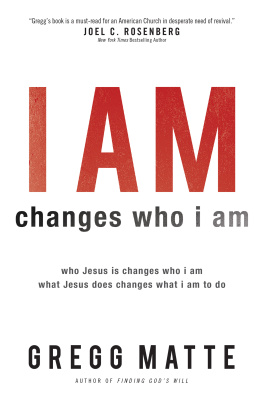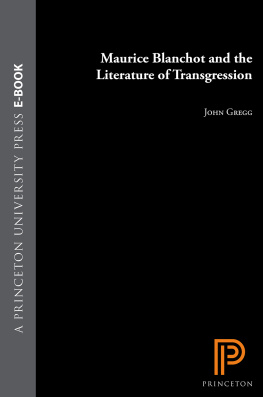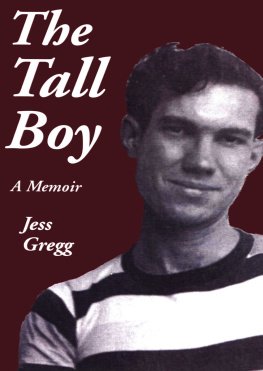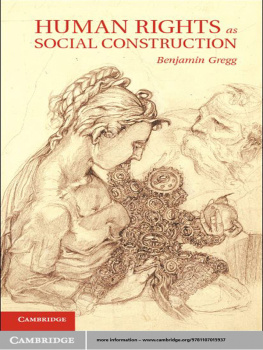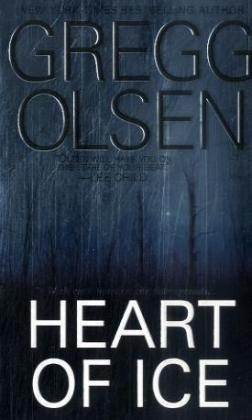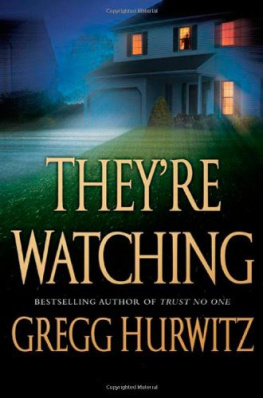My Life As An Abolitionist
John Gregg Fee
Contents:
My Life As An Abolitionist
Introduction.
Preface.
Chapter I.
Chapter II.
Chapter III.
Chapter IV.
My Life As An Abolitionist, J. G. Fee
Jazzybee Verlag Jrgen Beck
86450 Altenmnster, Loschberg 9
Germany
ISBN: 9783849643911
www.jazzybee-verlag.de
www.facebook.com/jazzybeeverlag
admin@jazzybee-verlag.de
My Life As An Abolitionist
Introduction.
IN consenting to write an introduction to the Autobiography of one whom I have long known and honored, I desire to say that the nineteenth century has not been more remarkable for its discoveries in science, art, and all forms of material progress, than it has for the moral heroism of many men and women whose courage, faith, patience and self-sacrifice have done so much to promote justice and humanity, and for the advancement of the Redeemer's kingdom. Among these Christian patriots there is one whose long life of consecration to the good of his fellow men ought to be not only an example but an inspiration to the youth of our land. John G. Fee, of Berea, Ky., was born and raised under the influences of slavery and was surrounded by those powerfully conservative forces that held many good men to the defense of oppression.
Perhaps no other institution ever did so much to pervert all sense of justice and to deaden all feelings of compassion as that which declares that under a republican government men might hold their unoffending fellow men in bondage.
"Chain them, and task them, and exact their sweat, With stripes that Mercy with a bleeding heart Weeps when she sees inflicted on a beast."
Nay, more, it held that this right of property in man carried with it the right to set at naught the family relation and doom men to the perpetual ignorance of God and his word.
The youth of our land can have little conception of the absolute control that half a century ago the system of slavery had on the minds and consciences of the nation. Nothing but a sublime faith in God enabled the men and women of that day to cheerfully accept reproach, ostracism and ridicule as inevitable consequences of the defense of the poor and needy whose special claim was that they were at once the feeblest and most despised of the children of men. Nor has this been the sole, possibly not the greatest, of the moral conflicts that have demanded and developed a true, moral heroism. The spirit of caste, the outgrowth of slavery, was and is not less exacting and iniquitous. To regard a fellow man simply in his relation to his Maker, and to accord to him just that appreciation that his intelligence and moral worthiness demand, to do this without regard to sect or color, is still held in large sections of our country to be a crime against society which will not be tolerated when there is power to suppress it. So, too, the moral protest against oathbound secret societies, - the uncompromising hostility to the liquor traffic and to any form of legislative approval of it, and above all, the opposition to divisions in the church of Christ as seen in the sects and denominations, demand a moral heroism which needs to be not less steadfast and self-sacrificing than that which wrested from slavery its scepter of power.
Because Mr. Fee was in all these points most uncompromising and true, and because of his indomitable perseverance amidst abounding obstacles, he has achieved a large measure of success, and won the appreciation of even his sometime enemies. But Bro. Fee is now advanced in life. His labor, though still efficient and valuable, cannot in the nature of things much longer continue. His reward is in his works that will follow him. In the language of the poet reformer, John G. Whittier, as applied to another, we may say, "Thanks for the good man's beautiful example."
"His faith and works, like streams that intermingle,
In the same channel ran;
The crystal clearness of an eye kept single
Shamed all the frauds of man.
The very gentlest of all human natures
He joined to courage strong,
And love outstretching unto all God's creatures
With sturdy hate of wrong."
H. H. HINMAN.
Preface.
Some six years since a friend requested that I prepare articles for the Berea Evangelist, on the topic, "Berea: its History and its Work." I did so. The articles appeared in the Berea Evangelist during the years 1885-6. Since that time friends have urged that I prepare a sketch of my leadings and labors up to my coming to Berea, and embody the whole in a volume. To do so will now be labor and care; yet in this way I may be able to do continued good, - utter truth when my tongue shall be silent. I may be able in an emphatic way to say to the reader, Trust God - trust him for success, for support, for life. If in this way you will trust God, he by his word, by his Spirit and by his providence, will lead you into the highest usefulness of which, in your day and generation, you are capable. Often trials will come, friends fail, and the heavens above appear as brass and the earth beneath as iron, yet if you will hold on with Jacob, or stand still with Moses, you will see the face of God; the Red Sea of difficulties will open before you, and you will walk through dry shod. The future journey may indeed be a barren, stony wilderness, yet the manna will be fresh every morning and the shekinah of God will go before you and lead you across the Jordan, where you will eat the "new corn" in the land of promise. To this my own consciousness bears testimony; were I to say less I would not be faithful.
JOHN G. FEE
Berea, Ky., 1891 .
Chapter I.
Parentage. - Conversion. - College Life. - At the Theological Seminary. - Deep Conviction and Consecration. - Field of Labor. - Burden of Spirit. - Sealing of the Holy Spirit. - Wife Chosen. - Betrothal. - Search for the Field of Labor. - Marriage. - Called to the Church in Lewis County. - Anti-Slavery Sermon. - Cast out of a Boarding-place.
I WAS born in Bracken County, Kentucky, Sept. 9, 1816.
My father, John Fee, was the son of John Fee, senior. He was of Scotch and English descent. His wife, formerly Elizabeth Bradford, was of Scotch-Irish descent. My father was an industrious, thrifty farmer. Unfortunately he inherited from his father's estate a bondman - a lad bound until he should be 25 years of age.
My father came to the conclusion that if he would have sufficient and permanent labor he must have slave labor. He purchased and reared slaves until he was the owner of some thirteen. This was a great sin in him individually, and to the family a detriment, as all moral wrongs are.
My father was observant, and by his reading kept himself familiar with passing events. He saw that the effects of slavery were bad; that it was a hindrance to social and national prosperity; and consequently invested his money in lands in free States and early deeded portions of these lands to each of his children. He did not see the end from the beginning, - what was to be the after-use of some of these lands.
My mother was industrious and economical; a modest, tender-hearted woman, and a fond mother. I was her first born. She loved me very much, and I loved her in return.
Her mother, Sarah Gregg, was a Quakeress from Pennsylvania. Her eldest son, Aaron Gregg, my wife's grandfather, was an industrious free laborer, an ardent lover of liberty, and very outspoken in his denunciations of slavery. This opposition to slavery and his love of liberty passed to his children and children's children, almost without exception.




